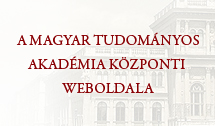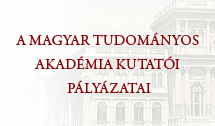The Institute of Philosophy of the Research Centre for the Humanities of the Hungarian Academy of Sciences kindly invites you to the upcoming talk of its seminar series
Igor Cvejić:
A NEW OUTLOOK ON KANT`S ACCOUNT OF FEELING
Date and Venue of the lecture: 26h May 2015, 4.00 pm, Institute of Philosophy, Research Centre for the Humanities, Hungarian Academy of Sciences, 30. Országház Street, 2. floor, "Pepita" room.
Abstract:
I will present approach to Kant`s understanding of feeling rather different from those we are commonly encountered. Consideration of specific original meaning of German word “Gefühl“, and specific understanding of pleasure and displeasure by Kant`s predecessors is of crucial importance. Kant himself has had many doubts about how to use this word before he articulated it as a feeling of pleasure and displeasure. Central presupposition was tripartite division of faculties into faculty of knowledge, desires, and feeling of pleasure and displeasure. As I intend to show, in accordance with this division, Kant understood feeling not as representation itself, but rather as subjective relational property of some representation, namely, its subjective causality to maintain or restrain its state (statum representativum). Both dominant interpretations of feeling (causal and intentional), as I will argue, fail to grasp this crucial aspect. Further, I will point to potential implications of my thesis concerning understanding of Kant`s aesthetics, by focusing my attention to §12. of Critique of the Power of Judgment.


